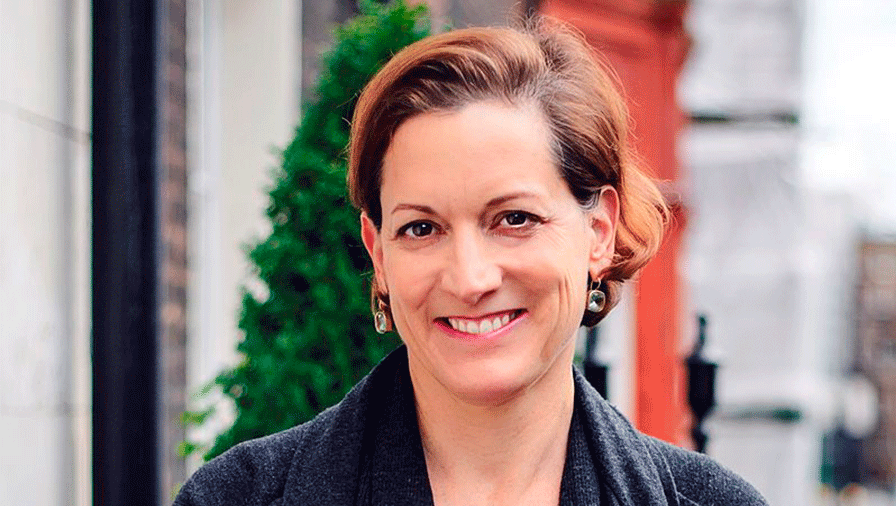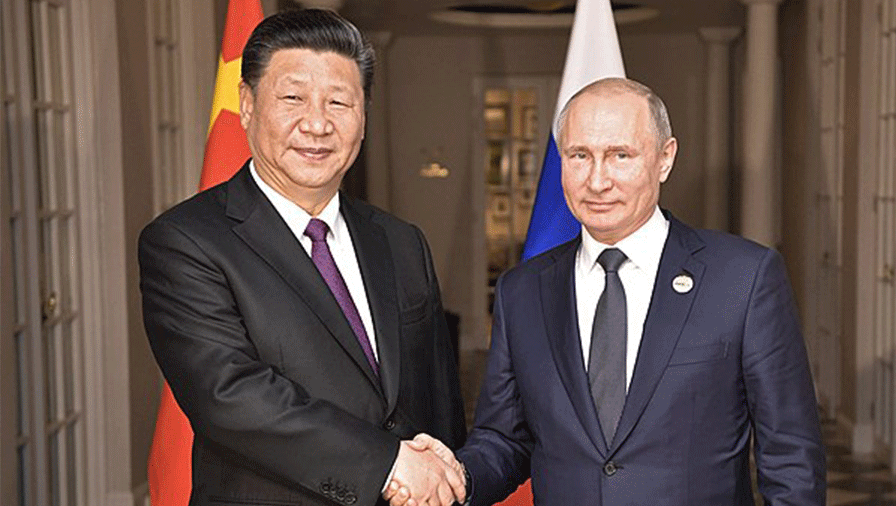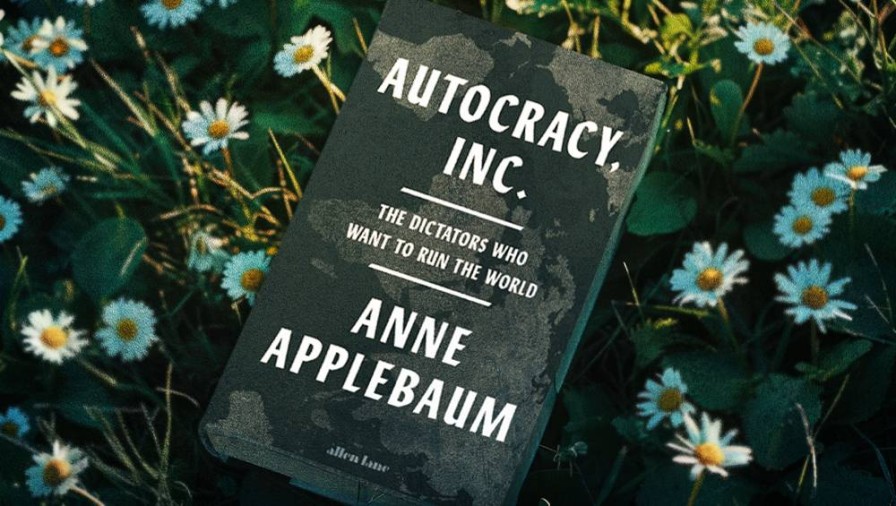Harbinger of hope for democracy’s future
ANALYSIS: How the autocratic world unites to subvert free world.
Autocracy, Inc. The dictators who want to run the world, Anne Applebaum (Penguin Random House).
ANALYSIS: How the autocratic world unites to subvert free world.
Autocracy, Inc. The dictators who want to run the world, Anne Applebaum (Penguin Random House).
Few countries are as chummy as Poland and New Zealand, despite the lack of any substantial trade or investment ties. The relationship goes back to World War II, when New Zealand was one of the few countries to accept Polish refugee children.
Politically, immigrants from Eastern European countries during the inter-war years were as unacceptable as those from any other non-English speaking country. Still, many managed to do so, contributing more to New Zealand’s artistic and cultural diversification than the numbers would suggest. (See: Leonard Bell’s Strangers Arrive: Emigres and the Arts in New Zealand 1930-1980.)
One outcome of this friendship, which survived the post-war Iron Curtain period, was a visit to New Zealand by Poland’s then foreign minister, Radoslaw (Radek) Sikorski, in 2013. In an interview, he told me it was a mutual back-scratching deal with his equivalent, Murray McCully, to support each country’s bid for membership of the UN Security Council.
While conversations with diplomats usually don’t yield much news, Sikorski was keen to promote Poland as a ‘poster child’ of how a country can move from a state command economy to an open market one.
“We carried out tough reforms in the 1990s – deregulating the labour market, reining in inflation, allowing a thousand flowers to bloom in small business – which is the sort of thing some eurozone countries need to carry out today,” he said.
“We did it first, we did it most radically and, thanks to that, the Polish post-communist recession was shorter and shallower.”
I credit Sikorski’s plain speaking to his wife, the American-born historian and journalist Anne Applebaum, who wouldn’t be interviewed in case it overshadowed the purpose of their visit.

Historian and journalist Anne Applebaum.
In the decade or so since, Sikorski regained his post after his party was restored to power in 2023 (his previous term was 2007-14). Applebaum, meanwhile, has added to her earlier historical works – Gulag: A History (2003) and Iron Curtain: The crushing of Eastern Europe, 1944-56 (2012) – with Red Famine: Stalin’s War on Ukraine (2017) and an updated version of her 1994 travelogue, Between East and West (2017) – reviewed here.
Her journalistic career took her to The Atlantic magazine in 2020 and she has turned away from history to shorter, more polemical works on geo-politics. The first of these books, Twilight of Democracy: The seductive lure of authoritarianism (2020), was a personalised discussion of a decline in democracy and the rise of populist right-wing nationalism in the US, Poland, and Hungary. It targeted a group of Western intellectuals who were critical of their own societies and supported conservative dictators who were united in their dislike of the US.
Applebaum’s latest, Autocracy, Inc: The dictators who want to run the world, takes this argument to the global sphere by describing the linkages among a host of countries whose rulers do not espouse a specific ideology, such as communism or fascism, but are mainly interested in exercising power for its own sake and, of course, enriching themselves in the process.
This was first articulated in an article, ‘The Bad Guys are Winning’, published in The Atlantic in December 2021 and elaborated on in her Washington Post columns.

Xi Jinping and Vladimir Putin enjoy a ‘no limits’ partnership.
The common thread is that the binary polarisation of the Cold War has been replaced by a more sophisticated one based on mutual interests in kleptocratic financial structures, security services (military, police, paramilitary groups, surveillance), and professional propagandists rather than ideology.
“The baddies are united by a desire to preserve and enhance their personal power and wealth, and do so by emphasising the weakness of democracy, and in particular the US and its allies,” Applebaum states.
Specifically, these countries are no longer constrained by the need to pretend they uphold the original intentions of the UN or any of the other organisations that arose from World War II and the much-vaunted rules-based new world order.
In fact, they flaunt and undermine the UN’s purpose to an extent you wonder why Sikorski and McCully even thought being on the Security Council would make a difference.
Applebaum points to the Russian invasion of Ukraine as the best indicator of how the world has become aligned. Russia has been supported by Belarus, whose dictator was rescued from a popular insurrection by Valdimir Putin’s intervention.
Superpowers China and India have given comfort to Russia from the impact of Western sanctions, while feisty North Korea, Iran, and Türkiye have supplied ample arms.

Venezuelan President Nicolas Maduro.
Applebaum would not have been surprised by Venezuela’s strong man, Nicolás Maduro, winning an election at weekend when public opinion polls showed otherwise. The most popular opposition leader, Maria Corina Machado, had been prevented from standing herself and instead was replaced by a 74-year-old former diplomat.
Venezuela gets support from nearby Cuba’s secret police and has been censured by the Financial Action Task Force for money laundering and terrorist financing. Russia, China, and Iran saved Venezuela’s oil industry from collapse, while Türkiye helps its illicit gold trade.
A group of Russian and Spanish oil traders set up a string of shell companies to allow Venezuela to send sanctioned oil to China. Profits are poured into buying high-tech products from the US for use by Russia against Ukraine. India, a ‘soft’ autocracy, does the same to get access to low-priced Russian oil.
Applebaum likens these countries to corporates with mutual interests. “Unlike military or political alliances … this group operates not like a bloc but rather like an agglomeration of companies, bound not by ideology but rather by a ruthless, single-minded determination to preserve their personal wealth and power.
She lists some 50 countries – mainly in Africa, the Middle East, and Asia – who share a determination to deprive their citizens of any real influence or public voice; who push back against all forms of transparency or accountability; and repress anyone, at home and abroad, who challenges them.

Myanmar’s armed forces are fighting a civil war.
They help each other whenever they can, convinced the outside world can no longer touch them. The hapless UN cannot judge or punish them. Unlike the Cold War, the new autocrats don’t fear criticism or pretend they hypocritically observe human rights as the Soviet Union did.
The leaders of the vilest regimes, say, Myanmar and Zimbabwe, show no embarrassment at massacring their populations, while China celebrates its destruction of a popular democracy movement in Hong Kong.
Applebaum’s describes the failure of the West’s pursuit of the rhyming German slogan: “Wandel durch Handel” – change through trade. Germany sought access to Russian energy in the hope this would spread democracy after the collapse of the Soviet Union and the Berlin Wall. The same belief applied to China as its industrial might exploded with acceptance into the World Trade Organisation.
“Everyone assumed that, in a more open, interconnected world, democracy and liberal ideas would spread to the autocratic states. Nobody imagined that autocracy and illiberalism would spread to the democratic world instead,” Applebaum observes.
Her book, like its predecessor Twilight of Democracy, runs to a tight 224 pages, and is the perfect e-book. It is obtainable instantly and intended to be read quickly lest it be outdated by today’s headlines. It’s not likely to improve with age.
Applebaum offers suggestions rather than solutions on how the democracies can respond. Support for Ukraine through an expanded Nato is one path. But this is clouded by the prospect of Donald Trump’s return to the White House.
The autocratic world thrives on the flow of dirty money and the flood of fake news. These are priority issues in a world where: “Nobody’s democracy is safe”. We can undoubtedly expect another volume soon from one of the most reliable liberal thinkers.

Autocracy, Inc. The dictators who want to run the world, by Anne Applebaum (Penguin Random House). E-book available now. Hardback released on September 9.
Nevil Gibson is a former editor-at-large for NBR. He has contributed film and book reviews to various publications.
This is supplied content and not paid for by NBR.
Sign up to get the latest stories and insights delivered to your inbox – free, every day.